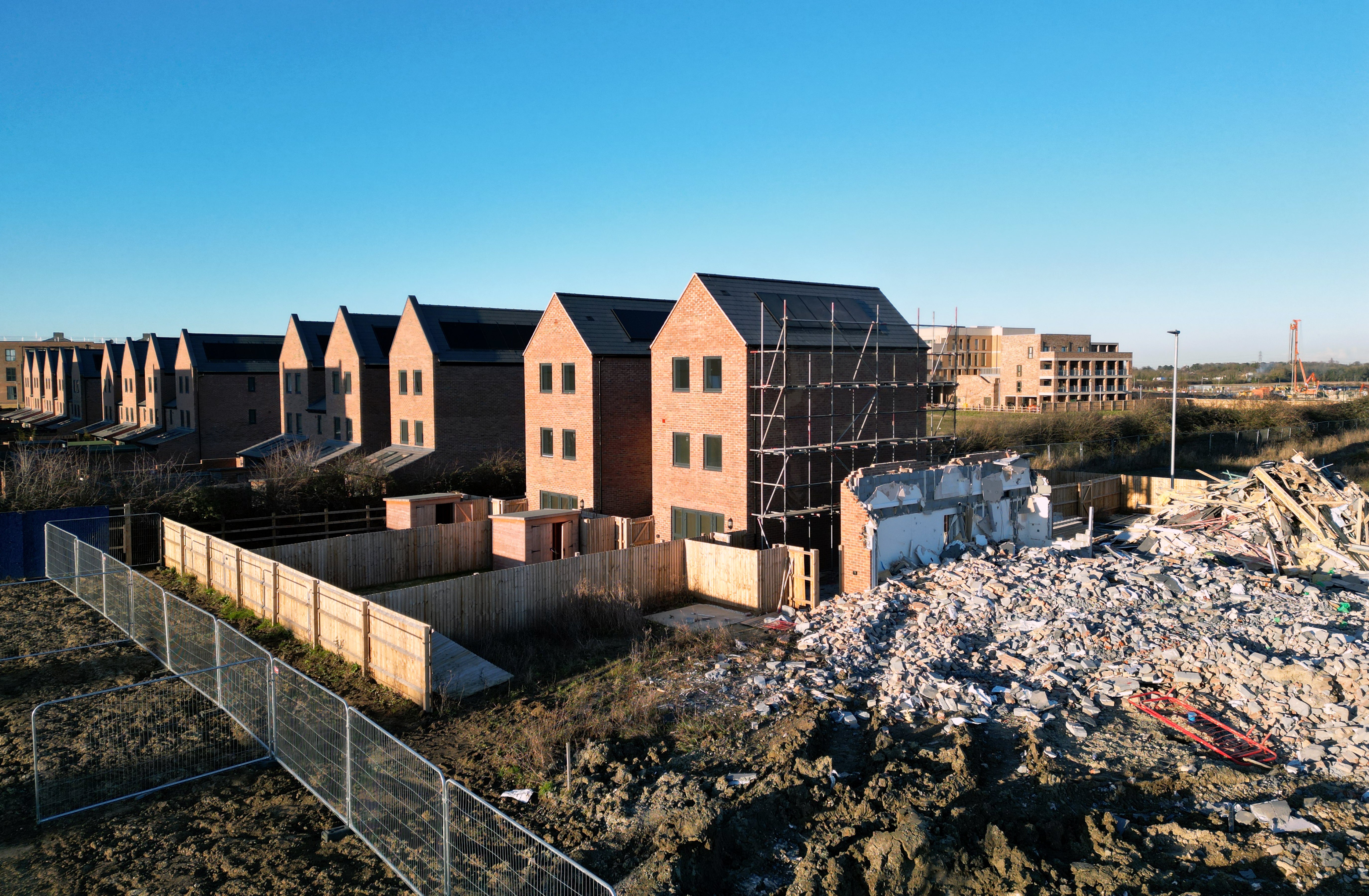Inflated farmland prices blocking government from building enough homes
Since the 1960s, local authorities buying up land under compulsory purchase orders have been required to pay inflated prices

Your support helps us to tell the story
From reproductive rights to climate change to Big Tech, The Independent is on the ground when the story is developing. Whether it's investigating the financials of Elon Musk's pro-Trump PAC or producing our latest documentary, 'The A Word', which shines a light on the American women fighting for reproductive rights, we know how important it is to parse out the facts from the messaging.
At such a critical moment in US history, we need reporters on the ground. Your donation allows us to keep sending journalists to speak to both sides of the story.
The Independent is trusted by Americans across the entire political spectrum. And unlike many other quality news outlets, we choose not to lock Americans out of our reporting and analysis with paywalls. We believe quality journalism should be available to everyone, paid for by those who can afford it.
Your support makes all the difference.Inflated prices for land are stopping the government from hitting its targets in building new social housing, according to a study.
Since the 1960s, local authorities buying up land under compulsory purchase orders have been required to pay inflated prices, offering a premium for landowners including farmers.
Scrapping the premium and getting help from developers could help cut the cost of building social housing by a quarter, or £4.5bn for the 90,000 social homes England needs a year.
The move would aid the places with the longest waiting lists the most, including London and the south east, the New Economics Foundation said.
Farmland or other undeveloped land with planning permission is worth many times more than greenbelt land. When land is bought speculatively for a premium, where the buyer thinks they will get that permission, the premium is called hope value. Hope value can increase as permission to build becomes more likely.
But until the land is bought by a local authority, probably when it is still protected, it isn’t worth more, so the premium should not be paid, said the researchers.
Alex Diner, senior researcher at the New Economics Foundation (NEF), said: “With record levels of homelessness, rising private rents, and increasing housing insecurity, this country desperately needs a new generation of social homes.
“The government has rightly declared tackling the housing crisis as a ‘moral mission’, but their plans are being blocked by unfair land rules. These rules should be reformed so that the country can build the homes we need while giving landowners fair and reasonable prices for their land.
“Further reforming the ‘hope value’ rule is vital to ensure the government hit their housing targets, build the homes we need, and tackle the housing crisis.”
It comes as the government considers banning other bonuses for land owners including marriage value, where a building owner receives a higher payment for extending leases for flats or houses with fewer than 80 years remaining.
The Leasehold and Freehold Reform Act 2024 proposes abolishing marriage value and capping ground rents, although it is not yet law.
Charities, the National Housing Federation and a panel of MPs have all suggested a target of 90,000 new social homes to be built a year for the next decade as part of a plan to help ease the housing crisis which is seeing home prices pushed further away for many people.
While social homes are reserved for the least-paid, building more will put less pressure on private housing stocks.
In England according to the Office for National Statistics, workers last year could expect to spend 8.3 times their wages buying a home. A multiple of five times earnings is considered affordable.
Houses have cost more than five times earnings for more than 20 years, largely driven by rising house prices.
The government was approached for comment.
Join our commenting forum
Join thought-provoking conversations, follow other Independent readers and see their replies
Comments